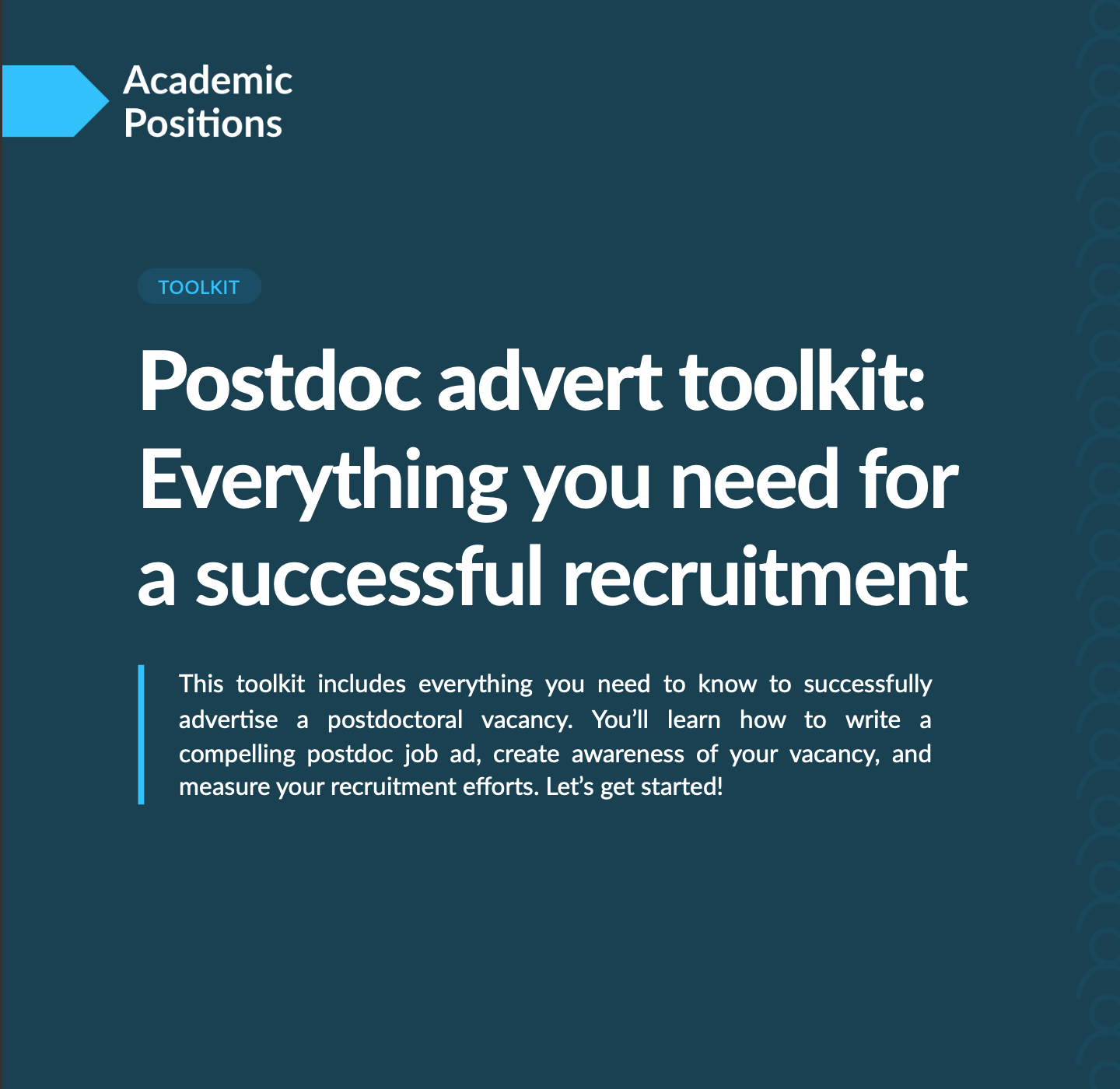You’ve got a fabulous opportunity for an eager academic you know would jump at the chance to work at your university. You craft an advert, post it to your website and wait. Days pass and you remind yourself how busy researchers and professors are. Weeks pass and you start scratching your head. Months pass and you are completely dumbfounded as to why you have only a handful of mediocre applications.
There could be several reasons why you’re not getting many applications for your open position. Lucky for you, all of them can be corrected and avoided so that you set yourself up for recruitment success.
You don’t accurately explain what the position is.
Many academic positions are described in terms that are generic or too short. This not only results in a bland description that does not compel candidates to take action, it often makes your job and your university sound exactly like the hundreds of other academic jobs and universities.
If your job description is too short, it may leave job seekers confused about the scope and focus of the position. Potential applicants won’t take the time to apply to a position that sounds boring and vague.
Additionally, if your university creates pdfs for each call, don’t simply put a link to the pdf in your advert and call it a day. Take the time to copy all the relevant information in the job description itself so candidates don’t have to do detective work to figure out what the position is.
People can’t easily figure out how to apply.
Applying to academic jobs is tedious with no guarantee that your time and effort will be rewarded with so much as an interview. If candidates have to do any extra or unnecessary work to even discern how to apply, they will not follow through with a completed application.
Even if this means a candidate has to follow a chain of links to get to the actual application, they likely won’t. Too many links — even if they are clearly labeled — can be frustrating when you’ve already spent hours starting at a screen browsing adverts.
Don’t make candidates do unnecessary work to find out what your job is about or how to apply. They won’t do it.
You ask for too much in your application.
Most private sector companies have gone to simplified one-click application processes. According to CareerBuilder, “Most job seekers prefer a one-click apply and aren’t interested in spending more than 10 minutes on one job application.” While a 10 minute application process is impossible in academia, the principle behind it still applies. If your application process is exceptionally complicated, it will reduce the number of applicants.
Most academic jobs require an enormous amount of information. This can take hours to compile so job seekers will likely only follow through if they believe they are a perfect fit. This means you’re probably losing out on many great candidates.
In an Washington Post article titled The academic job market is a nightmare. Here’s one way to fix it., Colin Dickey addresses the laborious task of applying to academic jobs.
“If committees really take such concerns seriously, they need to stop asking for highly specific documents at the start of the process, even if they do call for them later. […] If committees absolutely need more specific information, they can always request it in the second or third round, when they have whittled their applicant pool down to those who at least stand a fighting chance of getting the job. There are plenty of ways search committees can do more with less.”
Consider what this actually requires of applicants. How much of this information is absolutely vital versus nice to know. There will be time down the road — when both you and the candidate are more invested in one another — to gather some of this information.
You ask for too many qualifications.
Of course you want the best, most qualified candidates possible for each open position. However, sometimes finding the best candidate does not mean stuffing the advert with every possible qualification you can think of.
Instead, be strategic about the most important, necessary qualifications. Think of this from the candidate’s perspective. As a job seeker, if you see the list of desired qualifications go on and on (and on!), you could get scared off thinking you are not a good fit.
Remember, you’re not looking for a perfect fit (there’s no such thing). When you have a position that lists too many qualifications, it makes the job seem like it’s tailor made for someone. Many highly qualified candidates who are missing a couple of qualifications will assume they are not a match, when in fact, they could tick more of the boxes than anyone else.
Research shows that women, in particular, who are already underrepresented, will likely be scared off thinking that they don’t meet your requirements.
You’ve chosen a bad title.
When you’re browsing job advert after job advert, titles become increasingly incredibly important. As fatigue sets in, job seekers will move more quickly through adverts, scrolling by those that seem irrelevant or uninteresting. How will they decide? The title.
Titles can be especially tricky. You want to be specific, but not too specific. Avoid general titles like “PhD student wanted.” Be more specific. “PhD student in engineering wanted.”
If you write a title that is too specific, candidates who don’t match the title exactly won’t bother to click further. Remember, the title is the first thing job seekers will see. Be direct and specific and they’ll click through.
Download

Download your free postdoc advert toolkit
Get your free postdoc advert toolkit with our top tips for writing and sharing a postdoc advert that will make candidates excited to apply.
Download







